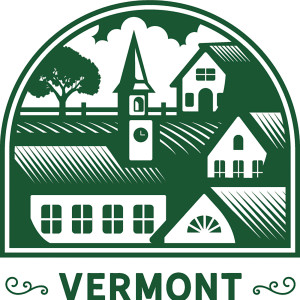
10.3K
Downloads
56
Episodes
”Life Became Very Blurry” is a podcast sharing the voices of Vermonters as they recall the experience of COVID-19. It is based on a three year project collecting oral histories and other records of the pandemic, and released in March 2025 for the fifth anniversary of the first lockdown. This podcast feed is home to a series of audio productions from the Vermont Historical Society, which believes that understanding the past changes lives and builds better communities. Our purpose is to engage Vermonters and Vermonters-at-Heart with outstanding collections, state-wide outreach, and dynamic programming.
”Life Became Very Blurry” is a podcast sharing the voices of Vermonters as they recall the experience of COVID-19. It is based on a three year project collecting oral histories and other records of the pandemic, and released in March 2025 for the fifth anniversary of the first lockdown. This podcast feed is home to a series of audio productions from the Vermont Historical Society, which believes that understanding the past changes lives and builds better communities. Our purpose is to engage Vermonters and Vermonters-at-Heart with outstanding collections, state-wide outreach, and dynamic programming.
Episodes

Thursday May 28, 2020
Episode 16: The Anarchist Movement in Barre
Thursday May 28, 2020
Thursday May 28, 2020
For more background on this episode, visit: https://vermonthistory.org/anarchist-movement-in-barre-1920

Tuesday May 26, 2020
Episode 15: Women Get the Vote
Tuesday May 26, 2020
Tuesday May 26, 2020
For more background on this episode, please visit: https://vermonthistory.org/women-get-vote-1920

Thursday May 21, 2020
Episode 14: Prohibition
Thursday May 21, 2020
Thursday May 21, 2020
For more background on this episode, visit: https://vermonthistory.org/prohibition-1920

Tuesday May 19, 2020
Episode 13: The Early Days of Radio
Tuesday May 19, 2020
Tuesday May 19, 2020
For more background on this episode, visit: https://vermonthistory.org/early-days-of-radio-1920

Thursday May 14, 2020
Episode 12: The Co-op Movement
Thursday May 14, 2020
Thursday May 14, 2020
Since the first dairy coop in Vermont began marketing mild in 1895, there has been a steady growth in the volume of dairy products handled by these organizations and the scope of their services to Vermont’s agricultural community. Available statistics show two dramatic tendencies—the gradual dominance by coops over proprietary dairies in the marketing of milk, and the consolidation of the dairy coops themselves over time.
For more background on this episode, visit: https://vermonthistory.org/the-coop-movement-1919

Tuesday May 12, 2020
Episode 11: The 1918 Flu Epidemic
Tuesday May 12, 2020
Tuesday May 12, 2020
In the late summer and autumn of 1918, the population of Vermont was ravaged by the pandemic of “Spanish Influenza” that struck nationwide and worldwide. The disease, which attacked the lungs, caused high fever, delirium, excruciating pains in the back and limbs, and nausea, swept across the state rapidly.
For more background on this episode, visit: https://vermonthistory.org/flu-epidemic-1918

Thursday May 07, 2020
Episode 10: World War I & Camp Vail
Thursday May 07, 2020
Thursday May 07, 2020
Camp Vail was organized in the summer of 1917 because of wartime concern about an inadequate supply of farm labor within the state. To deal with the issue, the Vermont Farm War Council, composed of representatives of agricultural organizations and agencies in the state, appointed Frederick H. Bickford of Bradford as Farm Labor Agent. Bickford conceived the idea of creating a camp to train young Vermont boys in farm work as a means of helping assure an adequate work force at wage rates Vermont farmers could afford to pay. Camp Vail at Lyndon Center, Vermont, was the result. The location was a nearly 2,000-acre area on the farm of Theodore N. Vail, president of the American Telephone and Telegraph Company, near the site of present-day Lyndon State College.
For more background on this episode, visit: https://vermonthistory.org/world-war-i-camp-vail-1916

Tuesday May 05, 2020
Episode 9: Traveling Entertainment: The Chautauquas
Tuesday May 05, 2020
Tuesday May 05, 2020
In the early years of the twentieth century, before the days of radio and movies, an annual entertainment and cultural highlight for rural Vermonters was “Chautauqua Week.”
The tent Chautauquas were traveling groups that operated in many parts of the United States from 1904 to 1930, usually in villages and towns of 500 to 10,000 people. Each stop lasted approximately three to seven days during which audiences could enjoy a diversified program of lectures, music, drama, and humorous entertainment.
For more background on this episode, visit: https://vermonthistory.org/traveling-entertainment-chautauquas-1915

Thursday Apr 30, 2020
Episode 8: 4-H in Vermont
Thursday Apr 30, 2020
Thursday Apr 30, 2020
With the decline of the Grange movement during the early part of the twentieth century, new instruments were developed to sustain the vitality of Vermont’s agricultural community. The Smith-Lever Act, passed by Congress in 1914 to provide for “the advancement of agriculture,” funded the fledgling Vermont Extension Service, operating under the aegis of the University of Vermont. Monies were channeled into three broad program areas, each to be administered by the Extension Service. The first was designed to promote extensive agricultural experimentation, the second sponsored “home demonstrations” across the state to acquaint farm families with innovations in “scientific” farming, and the third organized boys’ and girls’ clubs to “teach them how to manage, grow, and prepare market crops and animals and to demonstrate how to save surplus products by home canning.” Lest this language prove somewhat less than alluring, 4-H clubs, specifying “head, heart, health, and hands,” were born.
For more background on this episode, visit: https://vermonthistory.org/4-h-in-vermont-1914

Tuesday Apr 28, 2020
Episode 7: Early Aviation
Tuesday Apr 28, 2020
Tuesday Apr 28, 2020
Following news of the Wright Brothers’ exciting success at Kitty Hawk, exuberant Vermont youths took to their garages and workshops to construct their own flying machines.
For more background on this episode, please visit: https://vermonthistory.org/early-aviation-1910
